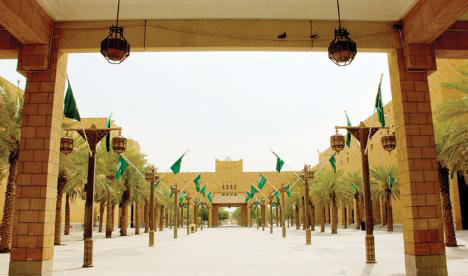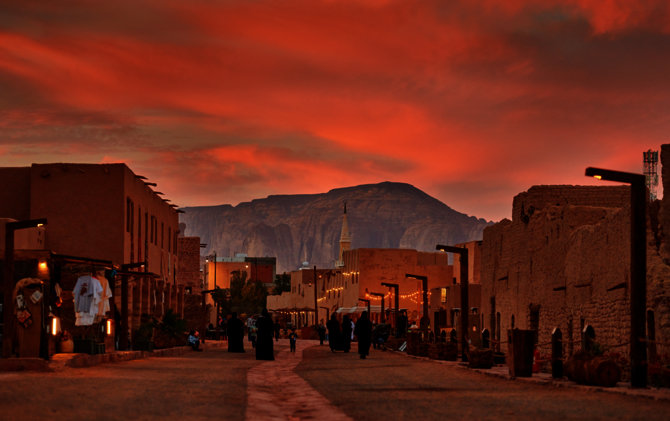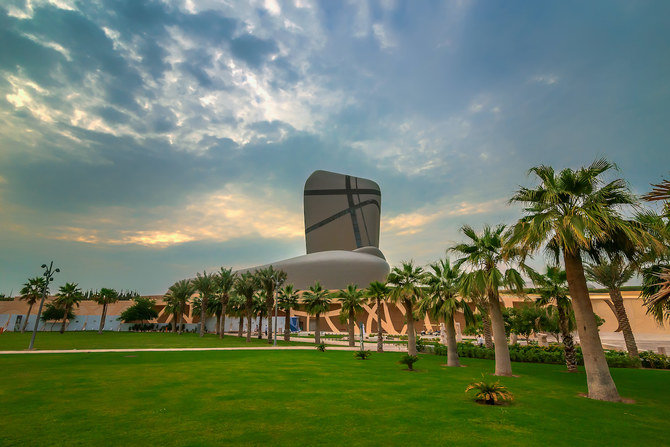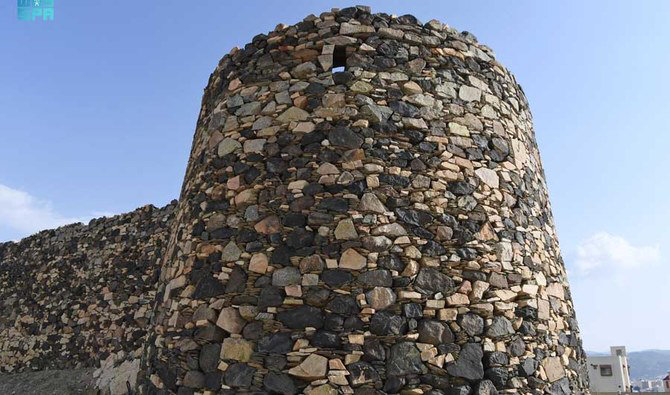JEDDAH: Ramadan in Saudi Arabia is a different experience to the rest of the year, as the days are slow and calm while the post-iftar evenings are abuzz with life and activity until sahoor.
There is no shortage of Ramadan-related activities, events and bazaars to enjoy across the Kingdom, filled with joyful experiences and a chance to enter into the spirit of the season. Visitors.
Here is a handy list of some of the best places and events throughout the country where locals and visitors can gather to savor the spiritual, lively atmosphere in the Kingdom during the long evenings of the holy month.
Riyadh
Qasr Al-Hukm is a favorite destination for many people during Ramadan, as it includes several traditional souqs, including Al-Maigliah, Al-Taamer and Al-Zel markets, which offer a fun shopping experience.

Qasr Al-Hukm is a favorite destination for many people during Ramadan in Riyadh. (Saudi Tourism photo)
Al-Safarat, or the Diplomatic Quarter, is a great area to visit to enjoy food, as it is filled with fantastic cafes and restaurants, many of which will have special Ramadan offers.
The Gulf Spring Cafe in Diriyah, located in the heart of the mesmerizing historical city, is considered by many one of the best places to visit in Riyadh during the holy month.
Jeddah
Al-Balad, or Historical Jeddah, is a top destination in the city where past and present collide to offer a wide selection of art, culture, food stalls, workshops, seminars, galleries, museums and more.
Bisat Al-Reeh is an exhibition and marketplace at Jeddah International Exhibition and Convention Center. It offers a range of merchandise, some of which is free or sold at very reasonable prices.

Historical buildings in Jeddah’s Al-Balad area, one of the UNESCO-listed heritage sites in Saudi Arabia. (AN photo by Huda Bashatah)
Jeddah Waterfront is the place to go for some entertaining light shows this year, featuring drones and fireworks.
The Tofareya Tent Restaurant, beside Lake Arbaeen, serves traditional Saudi cuisine in a modern style, with stunning views over the lake.
AlUla
The Old Town is adorned with Ramadan decorations and ready to welcome visitors who can wander through its historical alleys where they can stop and shop, eat, and learn about the area’s incredible history, or simply stroll around and savor the moment.

AlUla the Old Town. (Saudi Tourism photo)
Alkhobar
Villaggio Restaurant Village is a traditional Saudi village-themed venue that contains more than 30 restaurants offering a variety of cuisines, a dancing fountain and green space, making it a perfect destination to enjoy food in a modern urban atmosphere with more than a hint of the past.
Dammam
At Coral Island, visitors can enjoy the cool sea breeze while riding a boat, swimming, strolling, or enjoying the food at a restaurants, among other options.
Dammam Waterfront offers a wide variety of attractions and experiences in one place, whether you want to keep fit, go shopping or simply meet up with friends and family.
The Heritage Village, consisting of five floors, each of which represents the traditions and culture of a particular region of the Kingdom, has been specially decorated for Ramadan.
Visitors to Dammam Traditional Market can learn about the history of the city as they shop for local merchandise.
Dhahran
The King Abdulaziz Center for World Culture, also known as Ithra, is hosting many Ramadan festivities, shows, workshops, exhibitions, labs, cafes, restaurants, and other events during the holy month.
Taybeen Museum takes visitors on a tour of the past, with its displays that showcase the objects and products previous generations of Saudis used in their daily lives.

The King Abdulaziz Center for World Culture, also known as Ithra. (Saudi Tourism photo)
Yanbu
Flowers Park, one of Yanbu’s most beautiful public parks, has five specialist zones: the garden, a playground, a butterfly garden, the Rio Team Birds Garden, and a food area with restaurants.
Al-Shafa Market is a delicious destination that offers a memorable Saudi food experience, featuring dishes from every region.
Yanbu Historic Area is the place to go for cultural and traditional celebrations hosted in the heart of the old city. In this historic area, performers and vendors keep the festive spirit alive through their performances, food options, games and more.
Abha
Shamsan Historical Castle is an amazing historical sites in the south of the Kingdom. Built on a mountain during the days of the Ottoman Empire, the structure helped to defend the city. After learning about the history of the site, visitors can explore the surrounding area, which includes many restaurants.

Shamsan Historical Castle. (Saudi Tourism photo)
Al-Habala, or the “Hanging Village” is a historical mountain settlement that has been turned into a park and is reached via cable car. In addition to exploring traditional homes and other buildings, visitors can enjoy toboggan rides, go camping, and get closer to nature.
A visit to Jabla Sawda, or Sawda Mountain, one of Saudi Arabia’s highest summits, could be the height of adventure during Ramadan.
Jazan
The seven Jazan Museums — Dr. Ali Mohammed Awaji Museum, Ibrahim Montag Museum, Al-Aliyah Museum, Bi’ir Museum, Zayla’I Maritime Museum, Mount Texan Museum, and Jazan Museum of Archaeology and Heritage — reveal a different side of Jazan, its culture and heritage.
Visitors to the Jazan Heritage Village can learn about how the people of the area lived in olden times, including their clothes, accessories and architecture.
At the Fifa Mountains, you can ride a cable car, enjoy on a safari trip into the heart of the forest, or simply relax and meditate in nature.
Qassim
Jidiyah Heritage Castle, a prominent historical site in the region, is well worth a visit.
Take a trip to Garden Talents, a nature reserve in Buraidah, and see hundreds of colorful birds of various species.




























